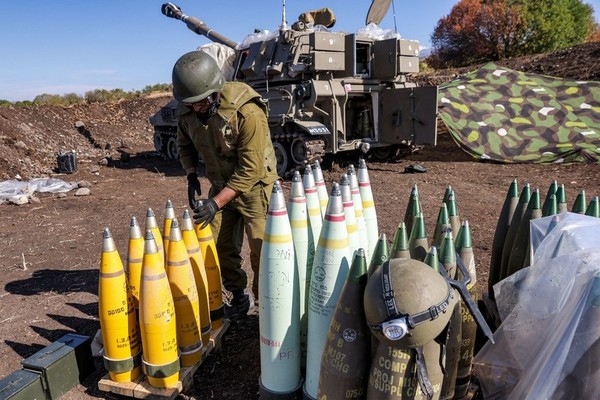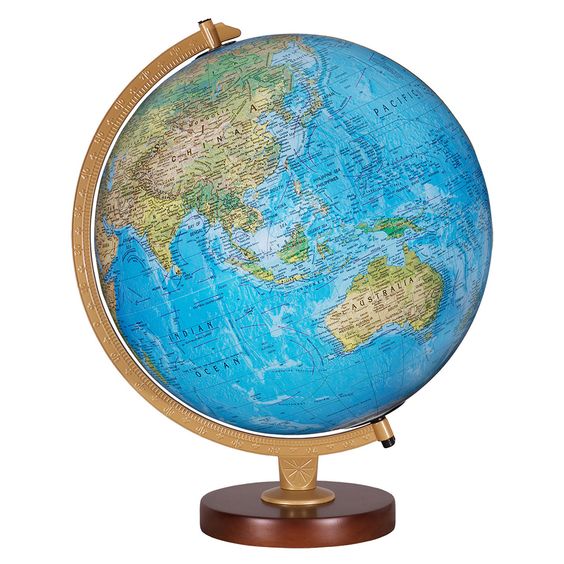
Selling weapons to Israel is a breach of international law. Canada, the Netherlands, Belgium, Italy, Japan and Spain have suspended arms shipments to Israel. They all agree that Israel is breaking a number of international laws.
By Tom Arms
Selling weapons to Israel is a breach of international law.
This is not my opinion. It is the judgment of 600 British legal eagles, including three former members of the UK Supreme Court. They have been joined by 130 parliamentarians and the three main Opposition parties have demanded a debate on the issue.
It is also the verdict of the governments of Canada, the Netherlands, Belgium, Italy, Japan and Spain. They have all suspended arms shipments to Israel.
All the above agree that Israel is breaking a number of international laws with its attacks on civilians in Gaza. Furthermore, that countries that supply the Israeli government with weapons are complicit in breaking those laws.
So what laws is Israel breaching? To start with there is Article 7 of the UN Arms Trade Treaty which “prohibits the export of arms where is an overriding risk that the weapons can be used to commit serious violations of international humanitarian law.”
It is an international law which has been enforced by Britain in the past. In 2019 the British Court of Appeals used it to suspend arms sales to Saudi Arabia based on the Saudis indiscriminate bombing of Yemen.
There is also the 1948 Geneva Convention Against Genocide, which, ironically, was enacted as a response to the killing of 6 million Jews in the Nazi Holocaust. This convention prohibits “acts committed with intent to destroy, in whole or in part, a national, ethical, racial or religious group.” It goes on to describe the prohibited acts: “causing serious bodily or mental harm to members of the group and deliberately inflicting conditions of life calculated to bring about the destruction of the group as a whole.”
Read: Global pressure grows on U.S. and Germany to stop arming Israel
The Israeli government and their supporters say that claims that they are breaching international law are “nonsense.” But, so far the Israeli Defence Force has caused the death of more than 33,000 Palestinians in Gaza and seriously injured 52,000 more. Eighty-five percent – 1.9 million people have had their homes destroyed by Israeli bombs. Gaza’s hospitals are medical rubble. Israel’s refusal to allow food and water into Gaza have created famine conditions. UN Secretary-General Antonio Guterres said that Gazans are “the highest number of people facing catastrophic hunger ever recorded.”
On Thursday, President Joe Biden and Prime Minister Benjamin Netanyahu had what press officers euphemistically call “a full and frank” telephone conversation. The president demanded an “immediate ceasefire” and that Netanyahu take “specific, concrete and measurable” steps to ease civilian suffering and protect aid workers.
The telephone call was immediately followed by a Brussels press conference by Secretary of State Antony Blinken who said: “If we do not see the changes we need to see, there will be changes in our policy.” This not-so cryptic comment was interpreted as meaning limitations on how US weapons are used. The United States provides $4.1 billion in military aid to Israel which represents 69 percent of Israel’s foreign-bought military needs. Germany is second with about 25 percent.
The final impetus for the American threats and the British calls for a suspension of arms sales, was the killing on Monday of seven Western aid workers—a Pole, a US-Canadian, three Brits, an Australian and a Palestinian driver. All seven were from World Central Kitchen (WCK) which had been distributing food. They had just picked up 100 tons of food aid when all three vehicles in which they were travelling were hit by Israeli missiles within four minutes of each other. Each vehicle had the WCK logo emblazoned on its roof.
Initially the Israelis said the deaths were a “tragic mistake.” Netanyahu added: “This happens in war.” But an amazingly fast IDF investigation announced on Friday that the deaths were the result of a failure to follow the IDF’s own rules of engagement. As a result a Colonel and Major have been fired and three other officers have been reprimanded. The IDF said further action may be taken against the officers.
The deaths of the WCK workers brings to over 200 the number of aid workers who have died trying to keep Gazan civilians alive. As a result of the latest deaths, a number of aid organizations have pulled out of Gaza. They cannot risk their workers lives. WCK has suspended its operations so has the American Near East Refugee Aid. Since October, WCK has served 43,000 meals. It was one of the biggest food aid operations in Gaza. Their withdrawal lends credence to the claim that Israel is weaponising famine which could be construed as “deliberately inflicting conditions of life calculated to bring about the destruction of the group as a whole.”
 World Review
World Review
Iran is unlikely to wreak a shattering vengeance for the Israeli attack on their diplomatic compound in Damascus. The attack killed Brigadier General Mohammed Reza Zahedi and seven others. General Zahedi led the Quds force, which is the overseas arm of Iran’s Revolutionary Guard. He was credited with helping the October 7 Hamas attack.
On the surface, it would be logical to think that Tehran would respond with a tit for tat attack—perhaps a strike against an Israeli diplomatic mission.
But the experts think not this time. There are several reasons. The first is that Iran is in a poor position economically and politically take Israel head-on. Years of sanctions have damaged the Iranian economy and the theocratic leaders face strong and growing domestic opposition to their repressive interpretation of the Koran and Sharia law.
Supreme Leader Ayatollah Ali Khameini is quite happy to employ the Houthis and Hezbollah to keep poking at Israel and the US and their allies, but fears the result of a direct confrontation. At least until Iran has a nuclear weapon to deter a full-scale Israeli-American attack.
Another reason observers think Iran is holding back is because Tehran believes that Israeli Prime Minister Benjamin Netanyahu wants to escalate and expand the war. Iran thinks, according to sources, that more war is Netanyahu’s best chance of staying in power and of securing wavering American support. Limiting the scope of hostilities makes it more likely that Israeli elections will be held and Netanyahu will be voted out of office.
_____________________
Meanwhile, the biggest threat to Netanyahu’s government appears to be coming not from Gaza, Iran, Joe Biden or the West Bank. It is from Israel’s Orthodox Jews.
This week the Israeli Supreme Court ruled that government subsidies for the Orthodox community must end and that Orthodox men and women—who have been exempt from conscription since 1948—must be subject to the Israeli draft like everyone else.
Almost as soon the court made its ruling, Attorney-General Gali Beharav-Miara, wrote to the education and defense ministers telling them to cut off funding to the Yeshiva schools and start drafting the estimated 60,000 Orthodox Jews aged 18 to 26.
But Benjamin Netanyahu is hesitating. He relies on the support of two Orthodox parties—Shas and United Torah Judaism—to stay in office. Their leaders are threatening to walk out of the fragile coalition government if the Supreme Court’s ruling is enforced. At the same time, the secular parties in Netanyahu’s coalition have issued warnings that they will collapse the government if the prime minister does not enforce the ruling.
Support for the Yeshiva community has been part of Israeli national life since Israel’s founding in 1948. Back then there were 500 of them. Their schools received generous government subsidies. The men were exempt from the draft and provided with a lifetime government stipend so that they could spend their lives studying the Torah.
Now the Yeshiva community makes up 13 percent of the Israeli population and because they have large families, the Orthodox Jews are expected to be the majority community in Israel by 2050. The argument is that Israel cannot continue to exist if half their population refuses to fight and has to be supported with government hand-outs so that they can concentrate on religious studies.
____________________________
A free press is a recognized pillar of democracies. This means a diverse range of opinion and debate has to be tolerated so that the electorate can make a fully informed decision.
That is why British liberals have to put up with the likes of GB News and the Daily Mail and conservative have to lump The Guardian. In America it is Fox News v. CNN or the New York Times. None of them like the other, but they would all fight to the death for their rivals’ right to publish opposing views.
In Israel the outlier is Al Jazeera. This week the government announced it was pushing through legislation that would allow it to ban foreign news outlets that it considered a threat to Israel’s security. Benjamin Netanyahu made it clear that the target of this legislation was Al Jazeera. And that he intended to move swiftly to ban it from being broadcast in Israel and to expel its journalists.
Every journalist who has had any contact with Al Jazeera, which includes myself, has admired the professionalism of its operations and its staff. The BBC is known for strict neutrality and objectivity—perhaps boringly so at times. It has a contract with Al Jazeera to share facilities, information and news footage.
The Qatar-based broadcaster is the only independent Arab broadcaster in the Middle East. All the others are state-run operations with the specific remit of broadcasting a narrow government message.
Al Jazeera recognizes it is Arabic and that its purpose is to report world events through an Arab lens. But then the BBC reports the world through British eyes and CNN through American. Al Jazeera, however, is not the mouthpiece of any government and its massive international audience reflects the respect in which it is held.
In Israel, it was one of the few news organizations that had journalists inside Gaza. The representatives of the Western news organizations have been banned from entering the war zone since 7 October, except for visits where they are controlled by the IDF.
For accurate reporting on what was happening in Gaza, the press corps turned to Al Jazeera. From the Arab broadcaster people learned the truth about the suffering of the Gazans. It was a truth that was damaging to Netanyahu, which is why they are being banned and another nail has been hammered in the coffin of Israeli democracy.
_______________________________
The Taiwan earthquake could have been much worse. As it is, it is pretty bad. As of this writing ten people are dead, 1,100 are injured, 12 are missing and 634 are trapped. 300,000 households lost power. Two railway lines were closed and 17,000 homes were without water.
Taiwan sits astride what is known as the Pacific Ring of Fire. This is a fault line which encircles the Pacific running through Japan, Taiwan, China and Indonesia on the western edge and the California coast, Chile and Colombia in America. Anyone living on this periphery has to live with the possibility of an earthquake or volcanic eruption destroying their lives.
But back to “it could have been much worse.” In 1999 a similar-sized earthquake in Taiwan resulted in 2,400 deaths. About 100,000 people were injured and thousands of buildings were destroyed. As a result of that earthquake tough new building regulations were introduced, for existing buildings as well as new. Government subsidies were provided and 36,000 buildings were improved to withstand shifting tectonic plates.
If the Taiwanese government had not responded after the 1999 quake then the death toll of this week’s disaster would have been much, much worse.
As it is the quake is expected to present some global challenges. Taiwan is home to the Taiwan Semi-Conductor Manufacturing Company (TSMC) which produces about half of the world’s computer chips which run everything your phone to your car to the clock on your oven. TSMC has a particular corner on high-end, high-value chips.
The company’s manufacturing plant at Hualien was a fair distance from the epicenter of the earthquake and it was built to withstand earthquakes. But for safety reasons it had to close down for about half a day. This has disrupted the company’s production schedule. Many of the high-end computer chips have to be produced in a vacuum for several weeks. If the vacuum seal is broken by a plant closure then the production process has to be started all over again.
Thus one of the results of the earthquake is likely to result in delays in the global supply chain of computer chips.
_____________________
 Tom Arms is foreign editor of Liberal Democrat Voice and author of “The Encyclopaedia of the Cold War and “America Made in Britain.” He also co-hosts the podcast “TransAtlantic Riff”
Tom Arms is foreign editor of Liberal Democrat Voice and author of “The Encyclopaedia of the Cold War and “America Made in Britain.” He also co-hosts the podcast “TransAtlantic Riff”
[…] Read: Observations of an Expat: Suspend Arms Shipments to Israel […]
[…] Read: Observations of an Expat: Suspend Arms Shipments to Israel […]